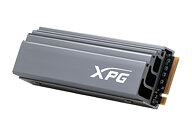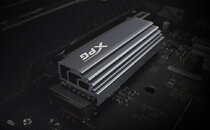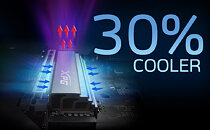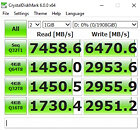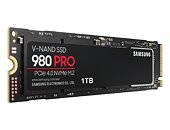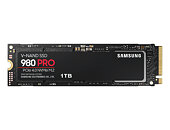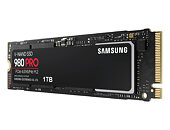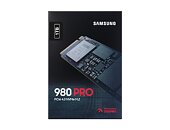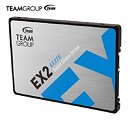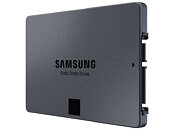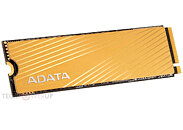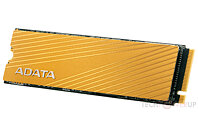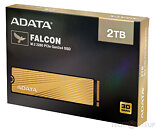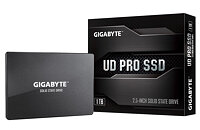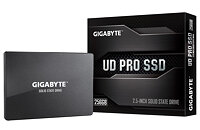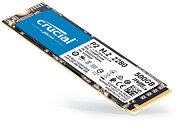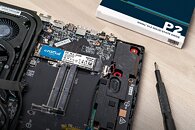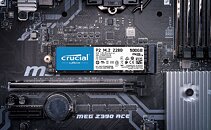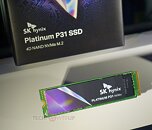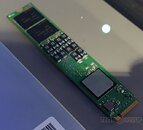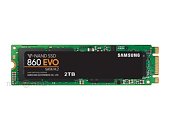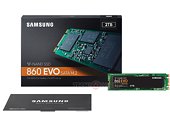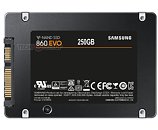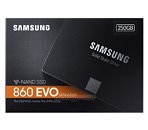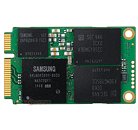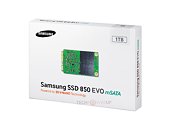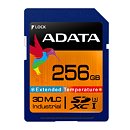Apr 16th, 2025 06:54 EDT
change timezone
Latest GPU Drivers
New Forum Posts
- Help For XFX RX 590 GME Chinese - Vbios (2)
- PCGH: "hidden site" to see total money spend on steam (1)
- Share your AIDA 64 cache and memory benchmark here (3053)
- NVFlash for RTX 50 Series (Blackwell) (0)
- GPU Memory Temprature is always high (13)
- intel 1700 with high speed ram,memory (63)
- Windows 11 fresh install to do list (18)
- The TPU UK Clubhouse (26115)
- Looking for help regarding issues with Asus TUF OC 5080 boost clocks (2)
- As we live the age of game remakes, which game you would like to see to have a remake? (377)
Popular Reviews
- G.SKILL Trident Z5 NEO RGB DDR5-6000 32 GB CL26 Review - AMD EXPO
- ASUS GeForce RTX 5080 TUF OC Review
- DAREU A950 Wing Review
- The Last Of Us Part 2 Performance Benchmark Review - 30 GPUs Compared
- Sapphire Radeon RX 9070 XT Pulse Review
- Sapphire Radeon RX 9070 XT Nitro+ Review - Beating NVIDIA
- Upcoming Hardware Launches 2025 (Updated Apr 2025)
- Thermaltake TR100 Review
- Zotac GeForce RTX 5070 Ti Amp Extreme Review
- TerraMaster F8 SSD Plus Review - Compact and quiet
Controversial News Posts
- NVIDIA GeForce RTX 5060 Ti 16 GB SKU Likely Launching at $499, According to Supply Chain Leak (182)
- NVIDIA Sends MSRP Numbers to Partners: GeForce RTX 5060 Ti 8 GB at $379, RTX 5060 Ti 16 GB at $429 (124)
- Nintendo Confirms That Switch 2 Joy-Cons Will Not Utilize Hall Effect Stick Technology (105)
- Over 200,000 Sold Radeon RX 9070 and RX 9070 XT GPUs? AMD Says No Number was Given (100)
- Nintendo Switch 2 Launches June 5 at $449.99 with New Hardware and Games (99)
- Sony Increases the PS5 Pricing in EMEA and ANZ by Around 25 Percent (85)
- NVIDIA PhysX and Flow Made Fully Open-Source (77)
- NVIDIA Pushes GeForce RTX 5060 Ti Launch to Mid-April, RTX 5060 to May (77)
News Posts matching #TBW
Return to Keyword Browsing
ADATA XPG Launches GAMMIX S70 PCIe Gen4 M.2 2280 Solid State Drive
ADATA XPG, a provider of systems, components, and peripherals for gamers, esports pros, and tech enthusiasts, today announces the XPG GAMMIX S70 PCIe Gen4x4 M.2 2280 solid state drive (SSD). With the launch of the S70, XPG now offers a comprehensive lineup of Gen4 SSDs, which includes the GAMMIX S50 and S50 Lite, to meet a range of budgets and needs. With the adoption of next-gen PCIe 4.0, the GAMMIX S70 delivers unmatched read and write performance and has the distinction of being the world's fastest M.2 SSD.
With the advent of 5G networks and the ever-growing volume of data being processed, PCIe Gen4 is a critical upgrade that will bring storage devices to the next level. The GAMMIX S70 expands XPG's Gen4 SSD series with a new option for discerning users seeking to harness the best that PCIe 4.0 can offer. Sporting blazing-fast read/write speeds of up to 7400/6400 MB per second. Users will have no doubt they have reached the pinnacle of SSD performance. In combination with NVMe 1.4 compatible, Dynamic SLC Caching, the S70 offers performance far superior to that of SATA and PCIe 3.0 SSDs. For added ease of use and convenience, the S70 is backward compatible with PCIe 3.0.
With the advent of 5G networks and the ever-growing volume of data being processed, PCIe Gen4 is a critical upgrade that will bring storage devices to the next level. The GAMMIX S70 expands XPG's Gen4 SSD series with a new option for discerning users seeking to harness the best that PCIe 4.0 can offer. Sporting blazing-fast read/write speeds of up to 7400/6400 MB per second. Users will have no doubt they have reached the pinnacle of SSD performance. In combination with NVMe 1.4 compatible, Dynamic SLC Caching, the S70 offers performance far superior to that of SATA and PCIe 3.0 SSDs. For added ease of use and convenience, the S70 is backward compatible with PCIe 3.0.

TEAM GROUP Launches QX, the First and Largest Consumer-Grade, 15.3TB 2.5" SATA SSD
TEAMGROUP today launches QX, the industry's first and largest consumer-grade, 15.3 TB 2.5" SATA solid state drive, shaking the industry with its powerful debut. The QX uses the latest 3D QLC flash memory and has up to 2,560 TBW of write life. It is super durable compared to other products in the industry, lightweight and compact, yet offers a high 15.3 TB storage capacity. The QX will revolutionize the consumer-grade 2.5" SATA SSD market with its market dominating specification.
The QX uses the latest 3D QLC flash memory, which not only has the industry's first and largest 15.3 TB storage capacity but also has industry's first write life up to 2,560 TBW. The ultra-high durability provides consumers with stability and reliability. The powerful QX supports smart dual Cache, including SLC Caching technology and DRAM Cache Buffer, delivering 560/480 MB per second of ultra-fast read/write speed for smooth user experience. At the same time, it also excellent features such as low power consumption, shock resistance, noise-free, etc. With the huge terabyte storage capacity of a mechanical hard drive and the read/write performance not found in traditional mechanical hard drives, it can revolutionize and redefine the consumer-grade 2.5" SATA SSD with its massive 15.3 TB storage capacity.
The QX uses the latest 3D QLC flash memory, which not only has the industry's first and largest 15.3 TB storage capacity but also has industry's first write life up to 2,560 TBW. The ultra-high durability provides consumers with stability and reliability. The powerful QX supports smart dual Cache, including SLC Caching technology and DRAM Cache Buffer, delivering 560/480 MB per second of ultra-fast read/write speed for smooth user experience. At the same time, it also excellent features such as low power consumption, shock resistance, noise-free, etc. With the huge terabyte storage capacity of a mechanical hard drive and the read/write performance not found in traditional mechanical hard drives, it can revolutionize and redefine the consumer-grade 2.5" SATA SSD with its massive 15.3 TB storage capacity.

Samsung 980 PRO NVMe SSD Uses TLC NAND Flash with Half the Endurance of 970 PRO: Product Page
Samsung's hotly anticipated 980 PRO M.2 NVMe flagship client-segment SSD is the company's first "PRO" branded SSD to feature TLC NAND flash memory, breaking from a unique tradition of using MLC (2 bits per cell) NAND flash. Product pages of the drive went live, and its specifications clearly state the use of "Samsung V-NAND 3-bit MLC," which is another way of saying TLC. "MLC" generally referred to as NAND flash memory that stores 2 bits per cell, even through the term "Multi-level" is amorphous.
The product page lists other juicy specs of Samsung's first M.2 NVMe client SSD that takes advantage of PCI-Express gen 4. The drive uses Samsung's in-house design "Elpis" controller, which uses NVMe 1.3 protocol over PCI-Express 4.0 x4, and an LPDDR4 DRAM cache. The 980 PRO comes in capacities of up to 1 TB, with up to 1 GB of DRAM cache. Samsung rates the 1 TB version as capable of up to 7000 MB/s sequential reads, up to 5000 MB/s sequential writes, and up to 1 million IOPS 4K random reads/writes at QD32. The use of TLC impacts endurance adversely in comparison to that of the drive's immediate predecessor, the 970 PRO, with the 1 TB 980 PRO warranty covering only up to 600 TBW, in comparison to 1200 TBW of the 970 PRO 1 TB, and the 500 GB 980 PRO offering just 300 TBW warranty coverage in comparison to 600 TBW of the 970 PRO 512 GB.
The product page lists other juicy specs of Samsung's first M.2 NVMe client SSD that takes advantage of PCI-Express gen 4. The drive uses Samsung's in-house design "Elpis" controller, which uses NVMe 1.3 protocol over PCI-Express 4.0 x4, and an LPDDR4 DRAM cache. The 980 PRO comes in capacities of up to 1 TB, with up to 1 GB of DRAM cache. Samsung rates the 1 TB version as capable of up to 7000 MB/s sequential reads, up to 5000 MB/s sequential writes, and up to 1 million IOPS 4K random reads/writes at QD32. The use of TLC impacts endurance adversely in comparison to that of the drive's immediate predecessor, the 970 PRO, with the 1 TB 980 PRO warranty covering only up to 600 TBW, in comparison to 1200 TBW of the 970 PRO 1 TB, and the 500 GB 980 PRO offering just 300 TBW warranty coverage in comparison to 600 TBW of the 970 PRO 512 GB.

TEAMGROUP Releases EX Series 2.5" SATA SSD
The TEAMGROUP EX Series 2.5" Solid State Drive is a must-have upgrade for top of the line PCs. The powerful sequential transfer speed of reading up to 550 MB/s and writing to 520 MB/s, even small and fragmented files can be operated with high efficiency. It also features the SLC Caching technology to avoid degradation of transfer performance effectively. Besides, the advanced Wear-Leveling technology and ECC function ensure the reliability of the EX Series, making it a must-have upgrade for the performance of your PC.
The TEAMGROUP EX2 SSD is available in 512 GB and 1 TB capacities which have a suggested MSRP of 56.99 USD and 99.99 USD respectively. The drives come with a 3-year warranty and are rated for 120 TBW on the 512 GB and 240 TBW on the 1 TB model.
The TEAMGROUP EX2 SSD is available in 512 GB and 1 TB capacities which have a suggested MSRP of 56.99 USD and 99.99 USD respectively. The drives come with a 3-year warranty and are rated for 120 TBW on the 512 GB and 240 TBW on the 1 TB model.
Enmotus, Company Behind Original StoreMI, Launches FuzeDrive NVMe SSD
Enmotus is the company behind the FuzeDrive software on which the original AMD StoreMI technology is based, which juggles data among your various physical storage devices based on heat (frequency of access), improving performance. The company has now come up with its first hardware-product, the FuzeDrive NVMe SSD. Built in an M.2-2280 form-factor, the drive offers 1.6 TB of capacity, and combines a Phison E12-series controller with 96-layer 3D QLC NAND flash memory. The drive takes advantage of PCI-Express gen 3.0 x4.
Performance numbers of the FuzeDrive 1.6 TB SSD as rated by its makers include up to 3,470 MB/s sequential reads, up to 3,000 MB/s sequential writes; and an endurance rating of 5,000 TBW. The drive uses a 128 GB SLC cache to speed up write performance in moderate bursts. There's more to this drive than just its hard-product, Enmotus includes software that juggles data between the 128 GB pseudo-SLC and QLC areas; and of course the FuzeDrive software that lets you build volumes of up to 15 TB in size by throwing in fixed physical drives of any shape and size. Enmotus is pricing the FuzeDrive 1.6 TB NVMe SSD at $349.Update Jul 3rd: We've learned through Enmotus that this drive has a permanent 128 GB SLC cache that's exclusive of the 1.6 TB QLC user-area. We believe this drive is possibly a 2 TB QLC drive, in which a quarter of the user area is permanently assigned to work as SLC, with 30,000 P/E cycles. The FuzeDrive firmware transfers hot data between the SLC and QLC areas of the drive.
Performance numbers of the FuzeDrive 1.6 TB SSD as rated by its makers include up to 3,470 MB/s sequential reads, up to 3,000 MB/s sequential writes; and an endurance rating of 5,000 TBW. The drive uses a 128 GB SLC cache to speed up write performance in moderate bursts. There's more to this drive than just its hard-product, Enmotus includes software that juggles data between the 128 GB pseudo-SLC and QLC areas; and of course the FuzeDrive software that lets you build volumes of up to 15 TB in size by throwing in fixed physical drives of any shape and size. Enmotus is pricing the FuzeDrive 1.6 TB NVMe SSD at $349.Update Jul 3rd: We've learned through Enmotus that this drive has a permanent 128 GB SLC cache that's exclusive of the 1.6 TB QLC user-area. We believe this drive is possibly a 2 TB QLC drive, in which a quarter of the user area is permanently assigned to work as SLC, with 30,000 P/E cycles. The FuzeDrive firmware transfers hot data between the SLC and QLC areas of the drive.

Samsung Launches the 870 QVO 8TB SATA SSD
Samsung Electronics today introduced its second-generation quad-level cell (QLC) flash drive, the 870 QVO SATA SSD, that is setting a new standard for high-capacity consumer storage. Featuring an industry-leading capacity of up to eight terabytes (TB), the new SSD delivers an uncompromising mix of speed, storage capacity and reliability for mainstream and professional PC users.
In the past, consumers have had to choose between SSDs - which provide superior performance - and HDDs, which traditionally offer greater capacity. Samsung's 870 QVO SSD, however, is able to reliably offer the best of both worlds, making it an optimal choice for mainstream PC users who prioritize performance and value, as well as for professional users who require high levels of capacity.
In the past, consumers have had to choose between SSDs - which provide superior performance - and HDDs, which traditionally offer greater capacity. Samsung's 870 QVO SSD, however, is able to reliably offer the best of both worlds, making it an optimal choice for mainstream PC users who prioritize performance and value, as well as for professional users who require high levels of capacity.

ADATA Announces the Falcon M.2 NVMe PCIe Gen 3 SSDs
ADATA today announced the Falcon line of SSDs in the M.2-2280 form-factor, with NVMe 1.3 protocol support, leveraging PCI-Express 3.0 x4 host interface. The drives are characterized by an aluminium heatspreader on top of the NAND flash chips and controller, which isn't just an adhesive metal peal, but a 1 mm-thick metal plate. The Falcon comes in capacities of 256 GB, 512 GB, 1 TB, and 2 TB; and uses 3D NAND flash memory (likely QLC).
The ADATA Falcon offers sequential speeds of up to 3,100 MB/s reads, with up to 1,500 MB/s writes; and up to 180,000 IOPS 4K random access. The 2 TB variant offers 1,200 TBW endurance, the 1 TB variant offers 600 TBW, the 512 GB variant 300 TBW, and the 256 GB variant 150 TBW. ADATA is backing the drives with a 5-year warranty. The company didn't reveal pricing.
The ADATA Falcon offers sequential speeds of up to 3,100 MB/s reads, with up to 1,500 MB/s writes; and up to 180,000 IOPS 4K random access. The 2 TB variant offers 1,200 TBW endurance, the 1 TB variant offers 600 TBW, the 512 GB variant 300 TBW, and the 256 GB variant 150 TBW. ADATA is backing the drives with a 5-year warranty. The company didn't reveal pricing.

GIGABYTE Announces Updated UD Pro Series High-Endurance SATA SSDs
GIGABYTE today announced the refreshed UD Pro line of high-endurance SATA SSDs. Built in the 2.5-inch form-factor with SATA 6 Gbps interface, the drives come in capacities of 256 GB (GP-UDPRO256G), 512 GB (GP-UDPRO512G), and 1 TB (GP-UDPRO1T). The new drives feature updated 96-layer KIOXIA 3D TLC NAND flash memory, with increased endurance rating across the board. The 1 TB variant offers a staggering 750 TBW endurance (for perspective, the NAS-optimized WD Red SA500 1 TB is rated with 600 TBW); while the 512 GB variant offers 370 TBW; and the 256 GB variant 175 TBW.
All three variants offer sequential transfer speeds of up to 550 MB/s reads, with up to 530 MB/s writes. The 1 TB variant offers up to 98,000 IOPS 4K random reads and up to 89,000 IOPS 4K random writes. The 512 GB model offers 97,000/89,000 IOPS. The 256 GB model offers 98,000/89,000 IOPS. All three drives appear to be using a Phison S10-series controller with fixed 256 MB DRAM cache across all three variants. GIGABYTE is backing these drives with 5-year warranties. The company didn't reveal pricing.
All three variants offer sequential transfer speeds of up to 550 MB/s reads, with up to 530 MB/s writes. The 1 TB variant offers up to 98,000 IOPS 4K random reads and up to 89,000 IOPS 4K random writes. The 512 GB model offers 97,000/89,000 IOPS. The 256 GB model offers 98,000/89,000 IOPS. All three drives appear to be using a Phison S10-series controller with fixed 256 MB DRAM cache across all three variants. GIGABYTE is backing these drives with 5-year warranties. The company didn't reveal pricing.

Crucial P2 Announced: Company's Second QLC M.2 NVMe Client SSD
Here's the first picture of the Crucial P2, the company's second M.2 NVMe client SSD series based on QLC NAND flash memory, and successor to the Crucial P1. The drive sticks to PCI-Express gen 3.0 x4 as its host interface, but increases sequential read speeds over the P1. Available in 250 GB and 500 GB models to begin with, the P2 offers sequential transfer rates of up to 2100 MB/s reads with up to 1150 MB/s writes for the 250 GB variant; and up to 2300 MB/s reads with up to 940 MB/s writes on the 500 GB variant. There's no word on whether the P2 uses the same QLC NAND chips as the P1, but we do spy a DRAM cache chip. Endurance of the P2 is rated at 150 TBW, and Crucial is backing them with 5-year warranties when they come out in the near future. Pricing in Europe is expected to be about 59€ for the 250 GB model, and 70€ for the 500 GB one.
Update 15:54 UTC: Crucial launched the drive Stateside at $54.99 for the 250 GB model, and $64.99 for the 500 GB model. We've added more images.
Update 15:54 UTC: Crucial launched the drive Stateside at $54.99 for the 250 GB model, and $64.99 for the 500 GB model. We've added more images.

A Walk Through SK Hynix at CES 2020: 4D NAND SSDs and DDR5 RDIMMs
Korean DRAM and NAND flash giant SK Hynix brought its latest memory innovations to the 2020 International CES. The star attraction at their booth was the "4D NAND" technology, and some of the first client-segment SSDs based on it. As a concept, 4D NAND surfaced way back in August 2018, and no, it doesn't involve the 4th dimension. Traditional 3D NAND chips use charge-trap flash (CTF) stacks spatially located next to a peripheral block that's responsible for wiring out all of those CTF stacks. In 4D NAND, the peripheral block is stacked along with the CTF stack itself, conserving real-estate on the 2-D plane (which can then be spent on increasing density). We caught two 128-layer 4D NAND-based client-segment drives inbound for 2020, the Platinum P31 M.2 NVMe, and Gold P31 M.2 NVMe. The already launched Gold S31 SATA drive was also there.

Patriot Also Shows Off Burst and P200 SATA SSDs
Patriot Memory's SSD lineup for 2019-20 includes two new SATA SSDs to cater to the mainstream market, the P200 and Burst. Both drives are built in the 2.5-inch form-factor, with SATA 6 Gbps interface. The Burst is available in capacities of up to 960 GB, and is powered by a Phison S11 controller with DRAM cache. The drive offers sequential transfer rates of up to 560 MB/s reads, with up to 540 MB/s writes, and endurance of up to 835 TBW, benefiting from the drive's overprovisioning. The P200 is an interesting drive, in that it comes in two controller options. Capacities 256 GB, 512 GB, and 1 TB ship with Silicon Motion SM2258XT DRAM-less controller, while the 2 TB version is powered by a Maxiotech MAS0902A. On offer are up to 530 MB/s reads, up to 460 MB/s writes, and up to 1 PBW endurance.

Kingston Technology Launches New Data Center 500 Series SSDs
Kingston Digital, Inc., the Flash memory affiliate of Kingston Technology Company, Inc., a world leader in memory products and technology solutions, today announced it is shipping the Data Center DC500R Enterprise SSD optimized for read-intensive applications. This is the first drive in the DC500 series that implements Kingston's strict Quality of Service (QoS) requirements to ensure predictable random I/O performance as well as predictable low latencies over a wide range of read and write workloads. Next week, the company will ship its DC500M SSD optimized for mixed-use workloads.
DC500R is ideal for read-intensive applications such as boot up, web servers, virtual desktop infrastructure, operational databases and real-time analytics. Cloud service providers and software-defined storage architects can leverage the drive's consistent I/O and latency performance to deliver the QoS needed in demanding read-centric environments. At .5 DWPD (drive writes per day), DC500R allows IT administrators to maximize their investment in storage hardware with a drive that delivers on performance, endurance and reliability. DC500R is available in 480GB, 960GB, 1.92TB and 3.84TB capacities.
DC500R is ideal for read-intensive applications such as boot up, web servers, virtual desktop infrastructure, operational databases and real-time analytics. Cloud service providers and software-defined storage architects can leverage the drive's consistent I/O and latency performance to deliver the QoS needed in demanding read-centric environments. At .5 DWPD (drive writes per day), DC500R allows IT administrators to maximize their investment in storage hardware with a drive that delivers on performance, endurance and reliability. DC500R is available in 480GB, 960GB, 1.92TB and 3.84TB capacities.

Plextor Intros M8V Series Value SATA SSDs
Plextor today introduced its latest line of value SATA SSDs, under the M8V series. Available in 2.5-inch and M.2-2280 form-factors, the drives leverage SATA 6 Gbps interface, combining Toshiba's latest-generation 64-layer BiCS TLC NAND flash memory, with Silicon Motion SM2258 controller. This controller offers LPDC and redundant array of NAND flash. Both variants come in capacities of 128 GB, 256 GB, and 512 GB.
Performance differs by capacity variants. All three capacity-variants read at speeds of up to 560 MB/s. The 128 GB, 256 GB, and 512 GB variants write (sequentially) at speeds of up to 400 MB/s, up to 510 MB/s, and up to 520 MB/s, respectively. Their 4K random-access speeds are rated at 60,000/70,000 IOPS (reads/writes), 81,000/80,000 IOPS, and 82,000/81,000 IOPS, respectively. Plextor rates their endurance at 70 TBW for the 128 GB variant, 140 TBW for the 256 GB variant, and 280 TBW for the 512 GB variant. Plextor is backing these drives with 3-year warranties.
Performance differs by capacity variants. All three capacity-variants read at speeds of up to 560 MB/s. The 128 GB, 256 GB, and 512 GB variants write (sequentially) at speeds of up to 400 MB/s, up to 510 MB/s, and up to 520 MB/s, respectively. Their 4K random-access speeds are rated at 60,000/70,000 IOPS (reads/writes), 81,000/80,000 IOPS, and 82,000/81,000 IOPS, respectively. Plextor rates their endurance at 70 TBW for the 128 GB variant, 140 TBW for the 256 GB variant, and 280 TBW for the 512 GB variant. Plextor is backing these drives with 3-year warranties.

Samsung 860 EVO SSD Makes an Appearance
Hot on the heels of Samsung updating its website with its next performance-segment SSD 860 Pro series, with its range-topping 4 TB variant, a similar pre-launch website update revealed the company's next mainstream SATA SSD, the 860 EVO. The drive will be available in three form-factors, 7 mm-thick 2.5-inch, M.2-2280, and mSATA; all with SATA 6 Gbps interface. The 2.5-inch version comes in 250 GB, 500 GB, 1 TB, 2 TB, and 4 TB variants; while the M.2-2280 version comes in just 500 GB, 1 TB, and 2 TB variants; and the mSATA version in 250 GB, 500 GB, and 1 TB variants. The drives combine Samsung's latest generation 3D VNAND flash memory built in the 10 nm-class sliicon fabrication process, with an updated controller and refined firmware.
The 860 EVO offers sequential transfer rates of up to 550 MB/s, with up to 520 MB/s sequential writes, up to 97,000 IOPS 4K random reads, and up to 88,000 IOPS 4K random writes. The new-generation flash is rated for "8 times higher" endurance than the 850 EVO series; with up to 2,400 TBW. Samsung is reinforcing its faith in the drive by backing it with 5-year warranties. The company is introducing the new TurboWrite feature, which is a user-configurable SLC cache. You can set anywhere between 12 GB to 72 GB of the NAND flash to function as SLC, so the controller can juggle hot data in and out of it, for improved performance, using the Samsung Magician software.
The 860 EVO offers sequential transfer rates of up to 550 MB/s, with up to 520 MB/s sequential writes, up to 97,000 IOPS 4K random reads, and up to 88,000 IOPS 4K random writes. The new-generation flash is rated for "8 times higher" endurance than the 850 EVO series; with up to 2,400 TBW. Samsung is reinforcing its faith in the drive by backing it with 5-year warranties. The company is introducing the new TurboWrite feature, which is a user-configurable SLC cache. You can set anywhere between 12 GB to 72 GB of the NAND flash to function as SLC, so the controller can juggle hot data in and out of it, for improved performance, using the Samsung Magician software.

ADATA Launches ISDD336 and IUDD336 Industrial-Grade SD Cards
ADATA Technology, a leading manufacturer of highperformance DRAM modules and NAND Flash products,today launched industrial-grade ISDD336 SD cards and IUDD336 microSD cards. Diversifying ADATA offerings for industrial storage, all models feature wide temperature tolerance as well as shock, vibration, and humidity resistance well beyond consumer product ratings. ISDD336 and IUDD336 cards utilize durable and long-lasting 3D MLC NAND Flash, and are fully compliant with SD 3.0/SPI specifications, making them reliable choices for embedded systems. Performance across the board reaches 95MB/s read and 90MB/s write. Customers can choose ISDD336 SD cards in 16GB to 256GB capacities, and IUDD336 microSD cards in 16GB to 128GB capacities.
ADATA continues to increase its focus on industrial-grade products, with more offerings for users. As the SD standard has clear advantages for industrial customers thanks to its compact form factor, durability, and low power requirements, ADATA strives to provide more choice in the SD space. Thus, ISDD336 cards arrive in SD form factor while IUDD336 cards deliver the same quality and performance in microSD.
ADATA continues to increase its focus on industrial-grade products, with more offerings for users. As the SD standard has clear advantages for industrial customers thanks to its compact form factor, durability, and low power requirements, ADATA strives to provide more choice in the SD space. Thus, ISDD336 cards arrive in SD form factor while IUDD336 cards deliver the same quality and performance in microSD.

Samsung 850 Pro SSD Reaches End of Life With 9100 TB Written
No, that isn't a major typo on this article's headline. According to print magazine c't, who conducted a test bench consisting of two pieces each of OCZ's TR150, Crucial's BX 200, Samsung's 750 Evo, Samsung's 850 Pro, SanDisk's Extreme Pro and SanDisk's Ultra II, the last SSD to actually give out the last breath was Samsung's 256 GB 850 Pro, with a staggering 9100 TB (that's 9.1 Petabytes) written. This is well beyond Samsung's suggested longevity for this particular SSD, which stands at 150 TBW.
The first particular model to give out was one of Crucial's BX 200, at 187 TBW (still more than twice over the manufacturer's 80 TBW). The second model to fail was the second Crucial BX 200, at 280 TBW. The remaining SSDs apparently died after a power peak (unclear whether a surge or a spike), save for the Pro models, in the form of SanDisk's Extreme Pro and Samsung's 850 Pro (it seems those Pro-oriented features do serve some purpose, eh?.) One of these SanDisk Extreme Pro models lasted for about 2,200 TBW, the same amount of writes the first Samsung 850 Pro model endured. However, the second Samsung 850 Pro broke through all records with its total 9,100 TB written. Naturally, these are interesting and impressive overall results, but they can't really be counted upon as being statistically significant; two models each aren't enough to achieve a representation of the tested SSD models' endurance. However, this also probably means that save a defect on your SSD's manufacturing, you can count on it for a considerable amount of writes.
The first particular model to give out was one of Crucial's BX 200, at 187 TBW (still more than twice over the manufacturer's 80 TBW). The second model to fail was the second Crucial BX 200, at 280 TBW. The remaining SSDs apparently died after a power peak (unclear whether a surge or a spike), save for the Pro models, in the form of SanDisk's Extreme Pro and Samsung's 850 Pro (it seems those Pro-oriented features do serve some purpose, eh?.) One of these SanDisk Extreme Pro models lasted for about 2,200 TBW, the same amount of writes the first Samsung 850 Pro model endured. However, the second Samsung 850 Pro broke through all records with its total 9,100 TB written. Naturally, these are interesting and impressive overall results, but they can't really be counted upon as being statistically significant; two models each aren't enough to achieve a representation of the tested SSD models' endurance. However, this also probably means that save a defect on your SSD's manufacturing, you can count on it for a considerable amount of writes.
Apr 16th, 2025 06:54 EDT
change timezone
Latest GPU Drivers
New Forum Posts
- Help For XFX RX 590 GME Chinese - Vbios (2)
- PCGH: "hidden site" to see total money spend on steam (1)
- Share your AIDA 64 cache and memory benchmark here (3053)
- NVFlash for RTX 50 Series (Blackwell) (0)
- GPU Memory Temprature is always high (13)
- intel 1700 with high speed ram,memory (63)
- Windows 11 fresh install to do list (18)
- The TPU UK Clubhouse (26115)
- Looking for help regarding issues with Asus TUF OC 5080 boost clocks (2)
- As we live the age of game remakes, which game you would like to see to have a remake? (377)
Popular Reviews
- G.SKILL Trident Z5 NEO RGB DDR5-6000 32 GB CL26 Review - AMD EXPO
- ASUS GeForce RTX 5080 TUF OC Review
- DAREU A950 Wing Review
- The Last Of Us Part 2 Performance Benchmark Review - 30 GPUs Compared
- Sapphire Radeon RX 9070 XT Pulse Review
- Sapphire Radeon RX 9070 XT Nitro+ Review - Beating NVIDIA
- Upcoming Hardware Launches 2025 (Updated Apr 2025)
- Thermaltake TR100 Review
- Zotac GeForce RTX 5070 Ti Amp Extreme Review
- TerraMaster F8 SSD Plus Review - Compact and quiet
Controversial News Posts
- NVIDIA GeForce RTX 5060 Ti 16 GB SKU Likely Launching at $499, According to Supply Chain Leak (182)
- NVIDIA Sends MSRP Numbers to Partners: GeForce RTX 5060 Ti 8 GB at $379, RTX 5060 Ti 16 GB at $429 (124)
- Nintendo Confirms That Switch 2 Joy-Cons Will Not Utilize Hall Effect Stick Technology (105)
- Over 200,000 Sold Radeon RX 9070 and RX 9070 XT GPUs? AMD Says No Number was Given (100)
- Nintendo Switch 2 Launches June 5 at $449.99 with New Hardware and Games (99)
- Sony Increases the PS5 Pricing in EMEA and ANZ by Around 25 Percent (85)
- NVIDIA PhysX and Flow Made Fully Open-Source (77)
- NVIDIA Pushes GeForce RTX 5060 Ti Launch to Mid-April, RTX 5060 to May (77)
